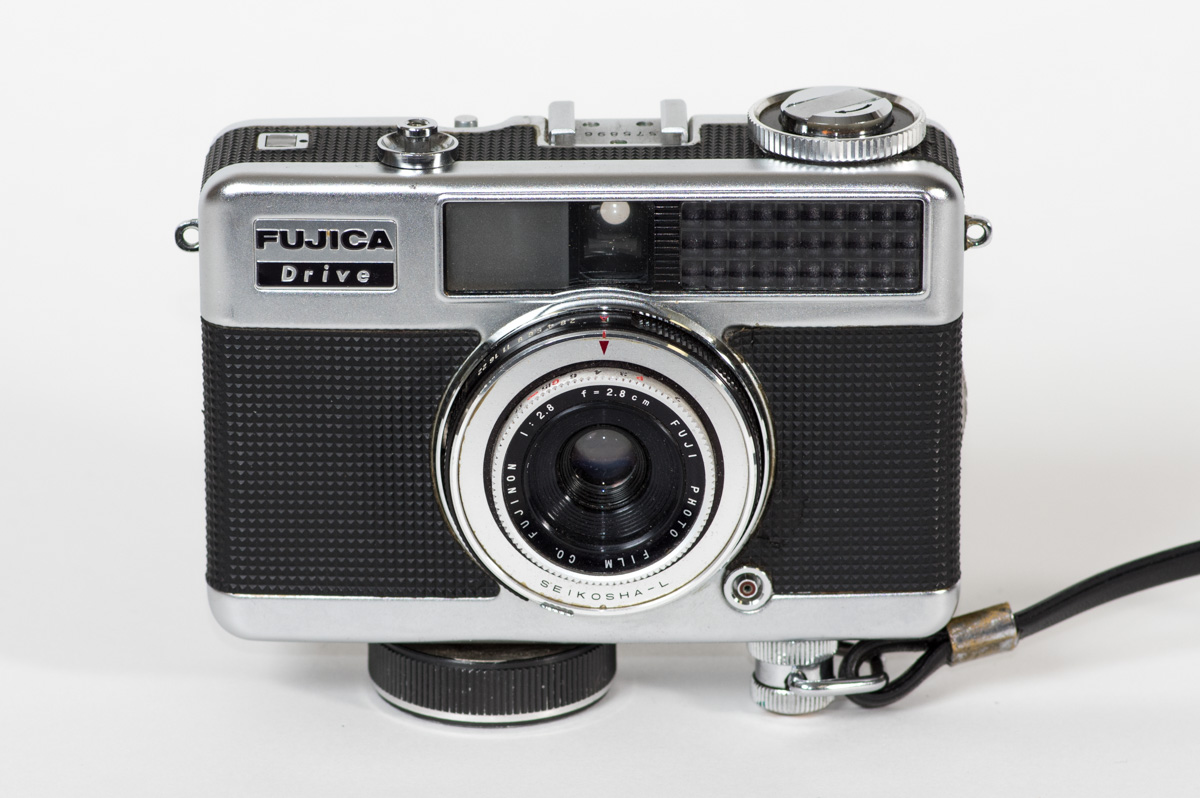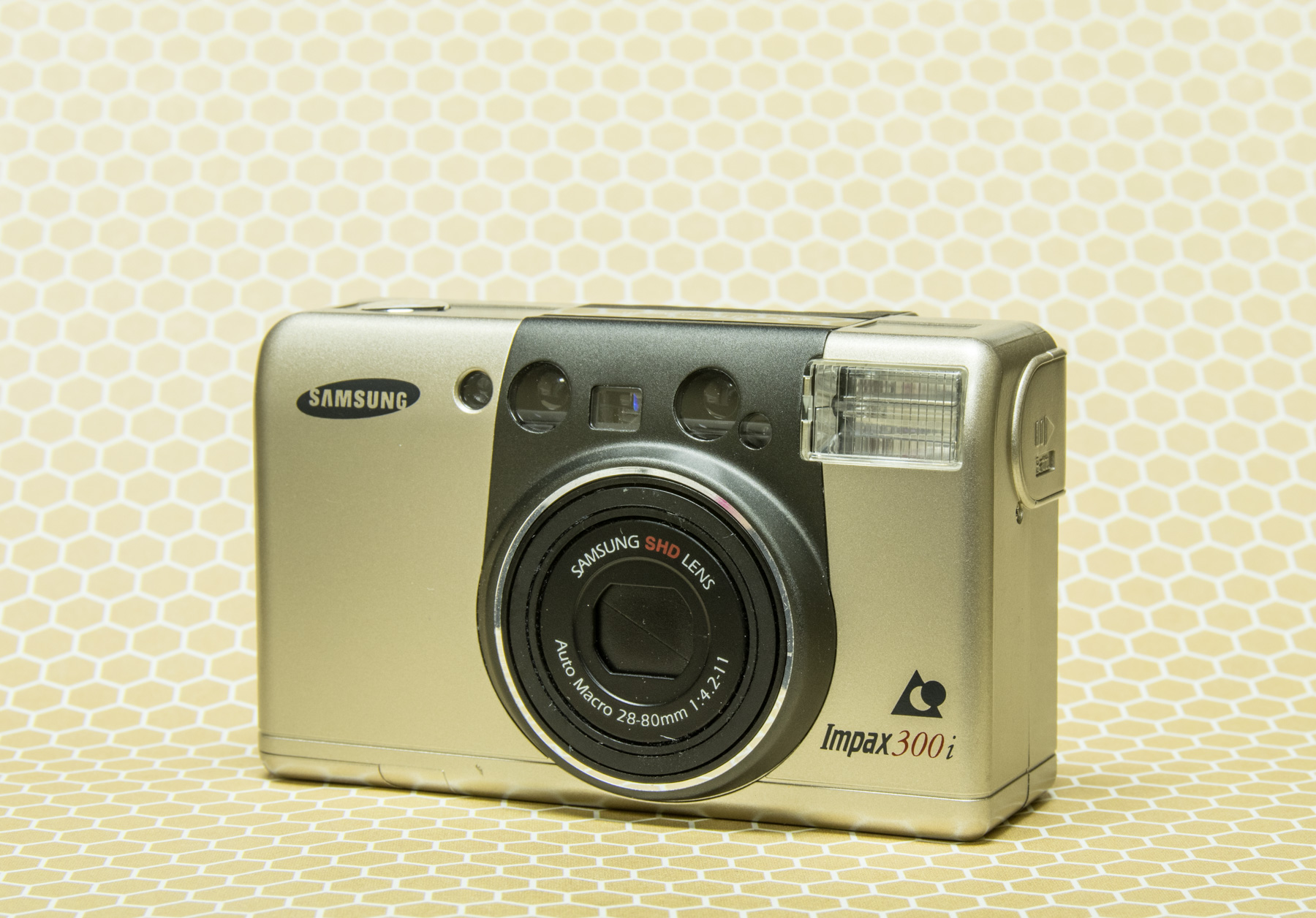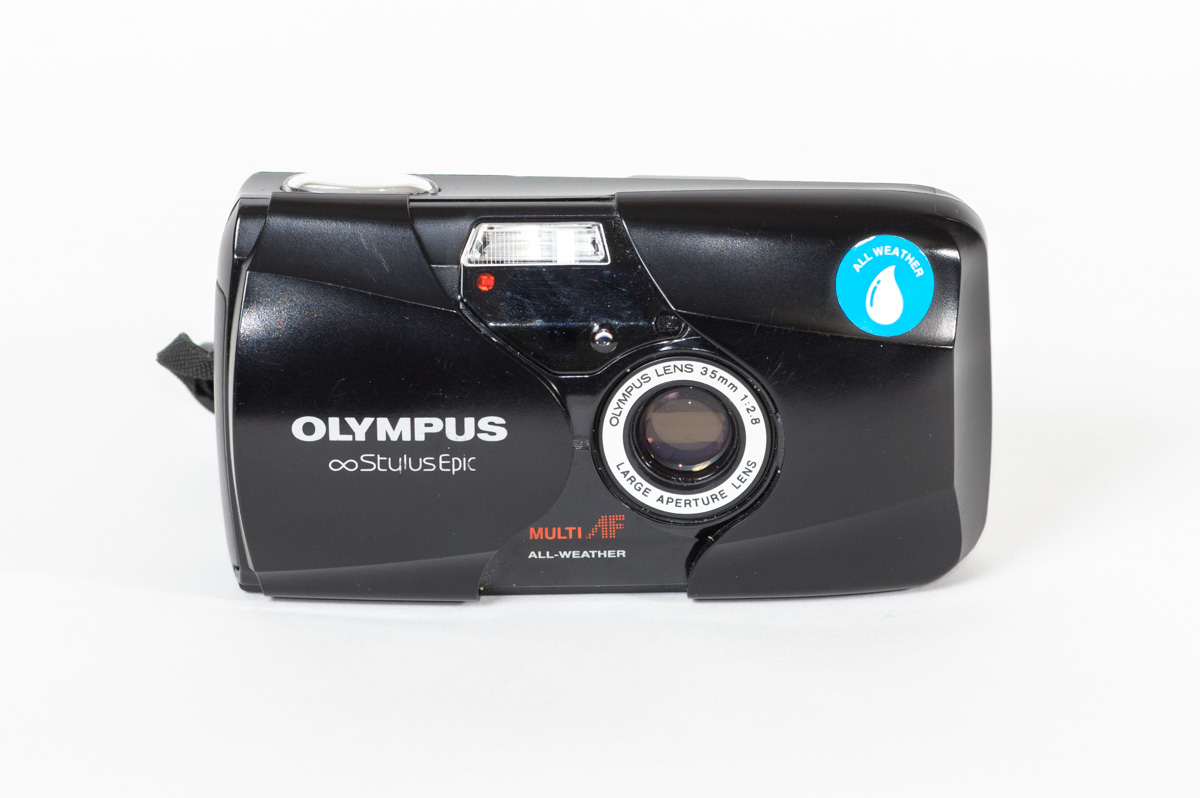Feb
24
2019

I was half way through this roll of Ultrafine Colouruption (ORWO NC-3) in my Konica Auto S3 when it stopped working. So I thought I would finish it in this camera with the idea that if it ended up being a grainy film that it would be accentuated by the half frame capture. However despite the strange colours the film is not particularly grainy. Nothing like the graininess of Adox Color Implosion although the colour shifts are even more extreme with this emulsion.
Here is a comparison shot taken with my Pentax Q7 digital camera and the Fuji Drive with Colouruption.


Now about the Fuji Drive. It has a 28mm f2.8 5 element lens which is surprisingly good but the cameras unique feature has to be that it uses a clockwork mechanism to advance the film. This is of course where it gets the name “Drive” from. The camera has a selenium meter that can be used for fully automatic exposure but you can also manually select shutter and aperture for more control. Also the meter system was made at a time when 100 ASA film was considered fast so it only goes to a maximum of 200 ASA. I’m also not really a fan of zone focus with most cameras so that’s a strike against it but if you pay attention to focus and set exposure manually you have a nice photography tool that is fun to use.
Another camera in my collection that has a clockwork film advance is the Ricoh Auto Shot.
no comments | posted in Cameras, Photography, Processing
Feb
17
2019

Some films age gracefully, some just fade away but Konica 400 VX does neither it turns everything magenta in a fit of rage. I know what your thinking ‘why don’t you just colour correct it?’ Well there is no colour correction on earth that can handle what ever this is. Yes I could adjust it but that would just give me a new set of weird colours.

I think I owe an apology and a roll of some decent film to my Yashica T3 now like this Agfa Vista 200 I used in it last time. Yashica T3 With Agfa Vista 200
no comments | posted in Photography, Processing
Feb
9
2019

Not one to waste film I finished a half complete roll of film in a Samsung APS film camera. APS film does not age well but that’s okay the internet is forgiving.
Here is one of the images that was already on the roll. 
I imagine it was probably taken by a family member and original owner of the camera who then put the camera away until the battery was flat and couldn’t be bothered to buy another one so just donated, it I wish them all well.
The champagne colour Samsung Impax 300i sports a 28-80mm 8 element lens. On the front it is silkscreened with an aperture range of f4.2-11 but Samsung’s own advertising at the time claimed a 4.6 – 10.6 range not a huge difference but its odd that the claims vary.
Shooting what film was already in the camera was a gamble and in no way is indicative of what the camera probably can do with a decent roll but it is APS film after all. A film format that started bad and over time gets worse, enjoy. It’s interesting that the previously exposed images took on a pee soup colour while my fresh exposures have a washed out cyan look all contained on the same roll. I suppose that the earlier images taken when the film had greater sensitivity were able to remain stored in their latent form better than the unexposed film was able to survive the loss of sensitivity over time.
no comments | posted in Cameras, Photography
Feb
2
2019

The Olympus Stylus Epic has always been a great deal of a camera. It sports a fantastic 35mm f2.8 lens with 4 elements. Released in 1997 Olympus says that they produced over 3.8million of them so they are easy to find used.
In 1999 they were available for $89 so you may want to keep that in mind when looking for a used one. They also tend to share a common problem of light leaks around the lens though so buying one may not be enough why not two or three if the price is right. 
image curtesy of Popular Photography
The Stylus Epic has active autofocus which is very useful in low or no light as the camera sends out a beam of infrared light and then determines the distance based on the delay in its detected return. Other cameras that use a passive phase detection system require a certain amount of existing light to work. This makes the Stylus Epic a great party camera or if you choose to suppress the flash for low light shots it is still able to focus. You just need some way of holding it steady.
One thing about one camera: The Stylus Epic (The µ [mju:]-II Compact Camera) has 414 steps to its active multibeam autofocus system between 0.35m and infinity
More of my posts about the stylus epic can be found around my blog Still Epic December 2014 , January 2014, May 2013 1, May 2013 2 , March 2013, September 2012, June 2012 , March 2011
no comments | posted in Cameras, Photography































































